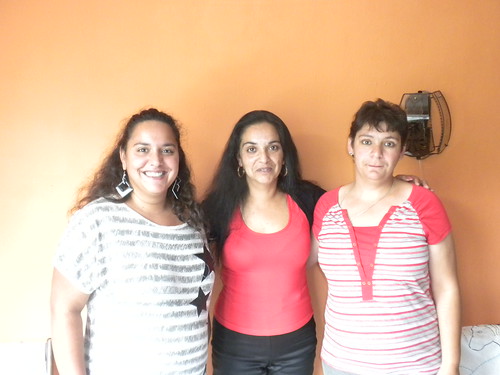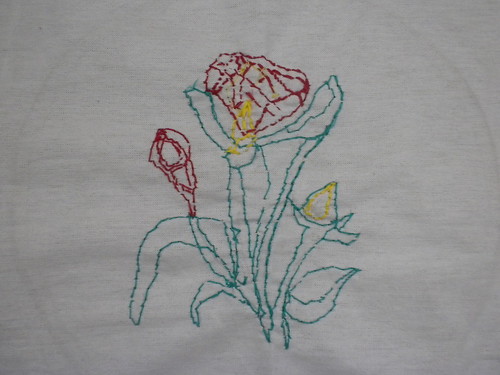Earlier this week another fire bombing occurred in the Czech Republic against a Roma family. There still has been no movement on education reform. Far right politician Bátora has condemned the upcoming Prague Gay Pride Parade. The Czech media is continuously distorting news stories which involve Roma individuals.
It often seems as if we are fighting a losing battle. How can one fight against such systematic prejudice and violence? Is there any possible way that things could change? Reading the news reports often leaves me feeling hopeless and useless.
But then I take me weekly trip to Mimoň to work with the women who have so bravely decided to stand against this institutionalized discrimination and I feel enormously better. There were originally 12 women working on this quilt. The number has since diminished to 6. I was initially concerned about this drastic drop. How can we create an effective tool if no one wants to work on it? But Emilie, always knowing how to soothe me, said, “We are the ones that have something to fight for. The other women are scared. We are not.”

Emilie, Emilie, and Renata have been working on the Czech Republic quilt since the very beginning of the project.
They are not scared. So I should not be frightened either. This past week was particularly enlightening for me, in addition to being fraught with emotion as I only have one more trip out to visit with these women who have become my surrogate family after living alone for the majority of my time in the Czech Republic.
Right now I am working on creating really in depth profiles of the women. I really want you to know them, and I want their stories to really have an impact on the Council of Europe. I set up my tripod and double checked my lighting and began asking one of the women, Renata, about her panels she has made.
She spoke of her late husband; of how when he was alive, she did not feel discrimination as harshly as she does now, due to the fact that her husband was non-Roma. She relates her story to the numerous other Roma women who are left to raise their children alone. She then hold up a panel I have not seen yet. It is a simple white background, with flowers blooming on it. (Oh no, this has NOTHING to do with Roma culture or her struggles. What am I going to do?!)
“This is for you,” she says. “Not for the quilt. No one has ever listened to me before. You have given me, given us, hope for the future. I want you to have this, so you can remember me. I will always remember you.”
I am left speechless. Me? Actually helping? Renata gives me a small smile. “Thank you, Beth.”
No, thank you, Renata. Thank you for making me feel as if it is possible to make a difference. It is not all hopeless. Despite the huge barriers these women face, they have hope for the future. They have not given up hope. And I will not give up hope either.
Posted By laura jones
Posted Aug 12th, 2011



